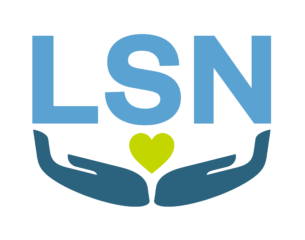The CAPS Post-MSW Fellowship Program utilizes a developmental sequential training process. We assess each fellow’s entry-level skills across the core service areas of the center and provide fellows a planned sequence of training experiences that increase in the level of required skill, complexity, challenge and autonomous functioning across the fellowship year. Training experiences are structured to be sequential, cumulative, and evaluated in complexity based on fellows’ individual needs, areas of strength and interest, and skill level.
CAPS Post-MSW Fellowship Program is grounded in a practitioner-scholar model of training. Consistent with this model, we assist fellows in integrating critical thinking skills, a foundation in theory, scientific inquiry, empirical literature, and collaboration within a multidisciplinary team and to inform their clinical practice and development as therapists. We emphasize a training approach that encourages fellows to become more cognizant of the underlying thought processes, intellectual and conceptual frameworks, and belief systems that guide their work and to think more critically about how they make decisions at clinical choice points.
CAPS uses a team approach to supervision and all supervisors communicate openly with each other. Supervisors participate in a weekly supervision meeting in order to establish a consistently high level of supervision, to process supervision issues, to communicate information about the training programs and to share input about training needs. In addition to individual supervisors, fellows will have the opportunity to interact with most staff throughout the year. Fellows have opportunities to work closely with a large and representative staff of clinical social workers, psychologists, and psychiatrists with a wide range of theoretical orientations (including interpersonal, cognitive-behavioral, existential, humanistic, psychodynamic, multicultural, feminist, and integrative) and areas of interest (such as gender issues, LGBTQ identities and communities, disordered eating, sexual and relationship violence, substance abuse, spirituality and mindfulness, suicide prevention, career development, and crisis intervention).
As clinical supervision may provide a parallel process to the therapeutic relationship, CAPS supervisors aim to provide a non-hierarchical and open-relationship. Feedback is tantamount to self-awareness and growth, and supervisors, we weave clinical and interpersonal feedback throughout supervision sessions. Fellows are also encouraged to provide feedback and are provided formal opportunities in which do so.
Throughout the fellowship, emphasis is placed on increasing multicultural humility. CAPS staff is strongly committed to addressing the needs of a the student body and providing culturally sensitive services, as well as continuing to develop capacity for cultural humility. Fellows will be expected to actively participate in activities designed to increase multicultural awareness, knowledge, and skills and to work with clients across many identities and experiences.
It is our belief that developing competence as a clinical social worker requires openness to personal exploration. We hold that clinical work is rooted in the therapeutic relationship. To this end, fellows are encouraged to understand and explore how their own thoughts, belief systems, emotions, and cultural histories impact their experiences as therapists. Fellows will be supported in considering their values, beliefs and the assumptions that underlie their work as clinical social workers.
We believe that training is most beneficial with fellows who take initiative and actively participate in their training. Thus, throughout the fellowship year, fellows are engaged in assessing their own needs and progress and understanding how they see themselves as emerging professionals. As staff, we remain engaged in the continued process of self-awareness, work to model the process of being lifelong learners.
Move on to GOALS AND EXPECTATIONS

